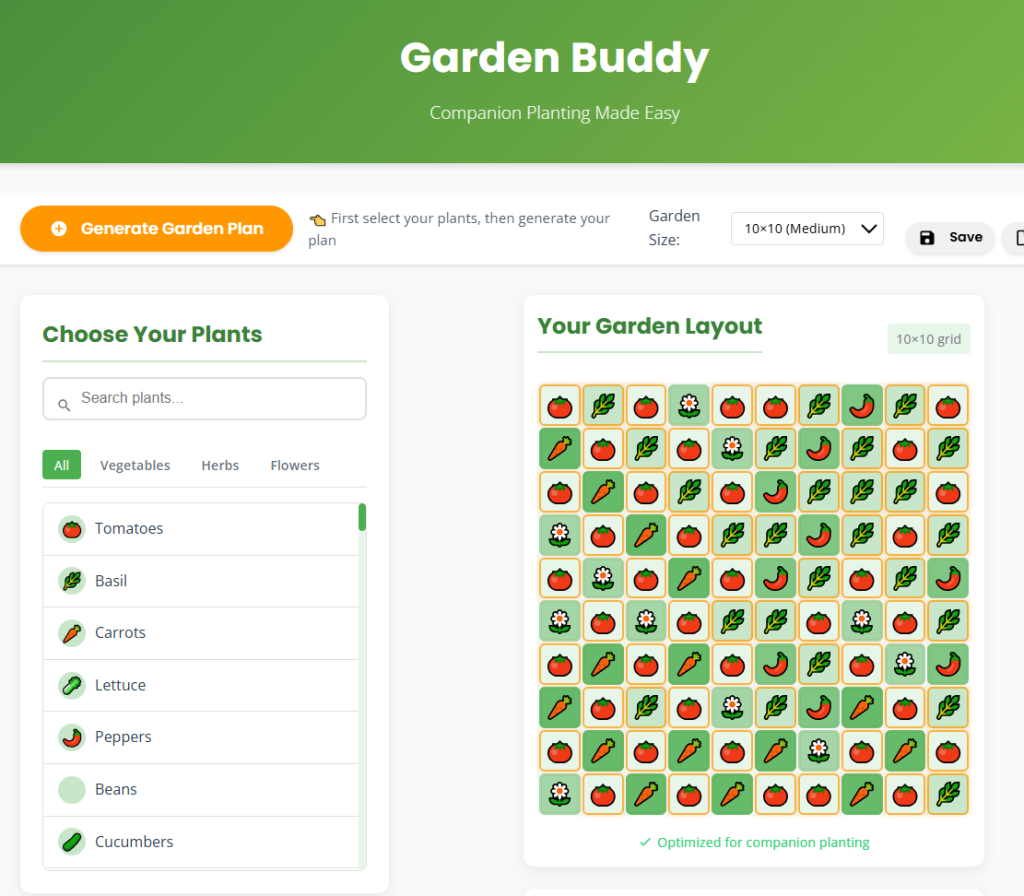
Growing Pole Beans: Your Handy Guide to Companion Planting
So, you’ve decided to dabble in growing Pole Beans, huh? Great choice! These climbing legumes not only provide a delicious harvest but also add vertical interest to your garden. Let’s dive into the world of Pole Beans—how to grow them, their background, and, most importantly, how companion planting can enhance your gardening experience.
I. Introduction
Pole Beans, or Phaseolus vulgaris, are fascinating plants. They’re typically grown as annuals, and they boast this lovely trait of climbing. These beauties need a sturdy trellis or fence to thrive and can reach up to six feet or more. Generally, they prefer full sun and well-drained soil rich in organic matter. Just make sure you keep the soil consistently moist, but not soggy!
Historically, Pole Beans have been cultivated for centuries, originating from Central and South America. Native American cultures often planted them alongside corn and squash—a classic trio known as the ‘Three Sisters.’ So, if you’re looking for a bit of gardening history, you’ve got it right here!
Now, onto how you can grow these lovely legumes. While most people stick to the traditional vertical method using trellises, you can also grow them in wide rows, or even let them sprawl if that’s your preference (though I wouldn’t recommend that). There are numerous varieties of Pole Beans out there, from the classic Kentucky Blue to the striking Purple Podded variety. Each brings its unique flair to your dinner table!
II. Benefits of Companion Planting for Pole Beans
Companion planting isn’t just a quirky gardening technique; it’s a time-tested method that helps you maximize your garden’s potential. So, what are the benefits of companion planting for Pole Beans? Well, for starters, they can enhance growth, deter pests, and improve the overall health of your plants. Trust me, it’s like giving your beans a helpful buddy to grow alongside!
What are good companion plants for Pole Beans?
When it comes to what pairs well with Pole Beans, I must mention two standout favorites: Corn and Sunflowers.
Plants to Avoid
Now, while it’s fun to plant with friends, there are also some plants to steer clear of if you want your Pole Beans to flourish. Onions and Beets are two that could cause more harm than good.
When planting your Pole Beans, arranging them thoughtfully in relation to these plants will help them thrive. Remember, a little space goes a long way in the world of gardening!
In Summary
Growing Pole Beans can be a rewarding adventure, especially when you incorporate companion planting into your strategy. With the right partners like Corn and Sunflowers, you can create a symbiotic relationship in your garden that boosts growth and pest resistance. Just make sure to keep those pesky Onions and Beets at bay by spacing them appropriately. Happy planting, and may your beans climb to great heights!
Companion Planting for Pole Beans: Spacing Made Simple
Hey there! If you’re like me and absolutely love the idea of nurturing a thriving vegetable garden, you’ll appreciate the benefits of companion planting. It’s a fantastic way to optimize your space, boost growth, and keep pests at bay. Today, I want to chat about the best spacing guidelines for various companion plants that can live harmoniously with Pole Beans.
General Spacing Guidelines
So, let’s dive right in! The golden rule for planting Corn and Sunflowers as companions to Pole Beans is about 12 to 18 inches apart. This distance allows your Pole Beans to climb while getting adequate sunlight and air circulation.
Guidelines for Tall Companions
When planting tall companions, it’s best to keep a distance of around 18 to 24 inches between them and your Pole Beans. Plants like Tomatoes and Peppers are great examples. They provide structure and just the right amount of shade without crowding.
Guidelines for Low-Growing Companions
For those low-growing buddies, aim for 6 to 12 inches of spacing. Think about Spinach and Radishes. They’ll thrive in the shade cast but won’t compete much for nutrients. What more could you ask for?
Guidelines for Strongly Aromatic Companions
Aromatic plants can deter pests and improve flavor. They should be spaced about 12 to 18 inches apart from Pole Beans. Great options are Basil and Marigolds. Plus, those beautiful marigolds can really jazz up the garden, don’t you think?
Guidelines for Nutrient-Heavy Feeders
Nutrient-heavy feeders like Squash and Cucumbers should be planted about 24 to 30 inches from your Pole Beans. These guys may need a little extra elbow room since they take up a lot of space and nutrients.
Guidelines for Spreading or Vining Companions
For spreading or vining companions, a distance of about 18 to 24 inches is usually sufficient. Think Pumpkins and Honeydew Melons. These plants can entangle with your beans, but make sure they have their own space to spread out without causing chaos!
Tip for Adjusting
Remember, it’s always essential to adjust these recommendations based on your specific garden conditions and the mature sizes of your chosen plants. Each garden is unique, and you want to ensure every plant has the best chance to thrive.
Summary of Companion Planting: Corn and Sunflowers
Corn
Corn likes to partner with not just Pole Beans but also with Cucumbers and Pumpkins. Their tall stature complements these sprawling plants beautifully, giving them support while they’re wandering about. Just make sure to maintain that 12 to 18-inch spacing!
Sunflowers
Sunflowers provide a stunning backdrop for Pole Beans while attracting pollinators. They’re also great companions for plants like Melons and Squash. Like corn, they benefit from similar spacing requirements of around 12 to 18 inches, keeping the clutter under control.
So, happy planting! By following these guidelines, you’ll not only cultivate a bountiful crop of delicious Pole Beans but also enjoy the fruits of an astonishingly harmonious garden. If you’ve got questions or want to share your gardening triumphs, just holler over the fence!

Leave a Reply